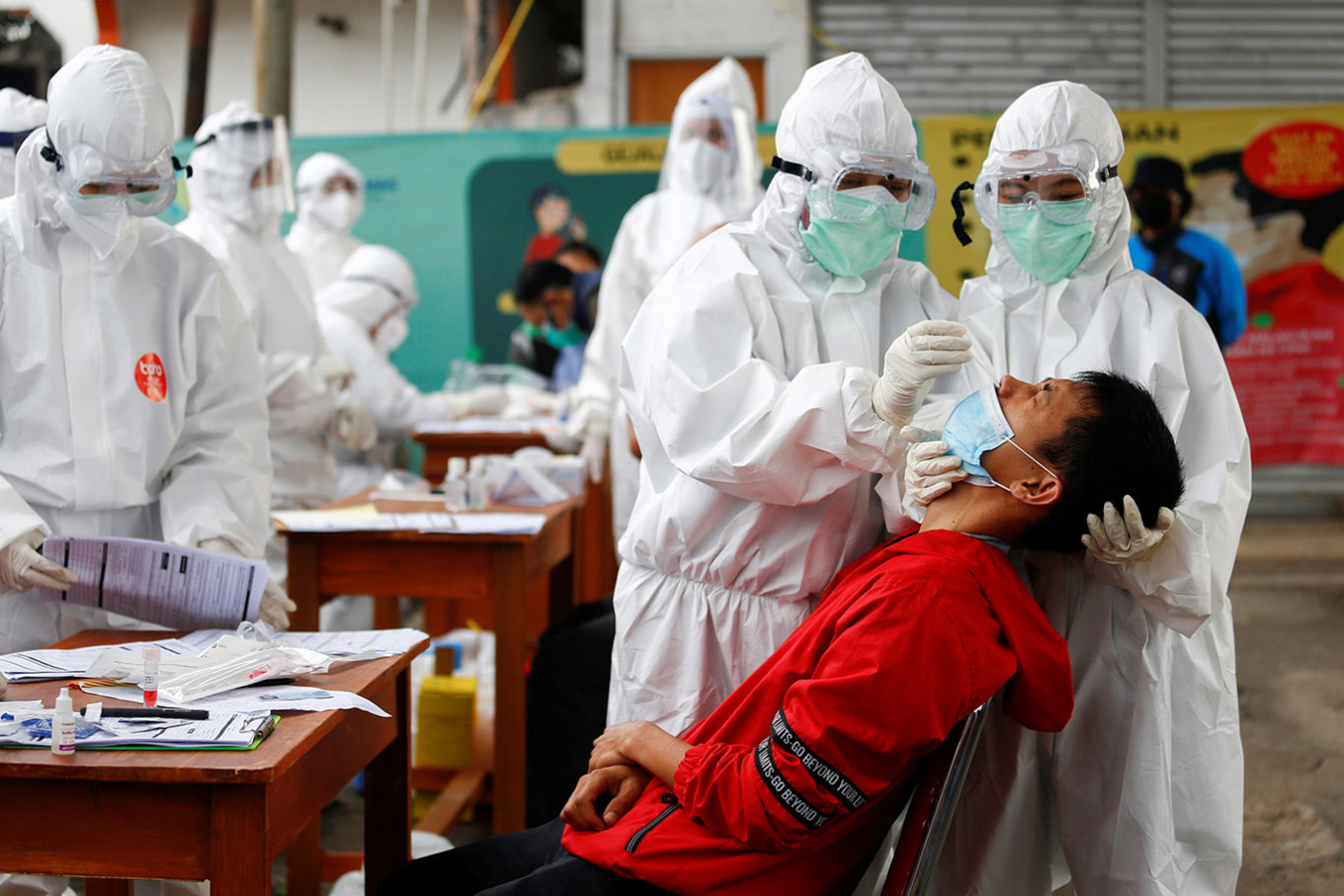Popular Reads
Top Results
Can't find what you're looking for?
View all search resultsPopular Reads
Top Results
Can't find what you're looking for?
View all search resultsRegional leaders call on everyone to play role in overcoming pandemic
Change text size
Gift Premium Articles
to Anyone
A
number of regional leaders have come to the defense of the central government from criticism over its handling of the COVID-19 crisis, saying that it is the responsibility of all people to help the nation get through the pandemic.
Central Java Governor Ganjar Pranowo said no one, including the government, had had any experience with the novel coronavirus and thus it was somewhat understandable for authorities to be "confused" while handling the health crisis and sometimes make blunders in policies.
Strong cooperation between the central government, regional administrations and people in the community was therefore necessary to overcome the challenges that emerge during the outbreak, he said during a teleconference organized by the Center of Indonesia Strategic Development Initiatives (CISDI) on Wednesday.
"The country's spirit is gotong royong [mutual cooperation], so we can't just delegate a particular task to the central government, or to certain regional administrations only. Containing COVID-19 is our shared responsibility," Ganjar said.
Ganjar said that he himself had introduced a community movement program dubbed Jogo Tonggo (neighbors looking after each other), in which community members collaborated to manage food and security in response to the pandemic.
"I openly told the public that this crisis is not going to end anytime soon and the government's financial aid will therefore never be sufficient. I therefore try to inspire empowerment among the community," Ganjar said.
Read also: With policy flip-flops, 'new normal' looks gloomy for Indonesia
Meanwhile, Anna Mu'awanah, the regent of Bojonegoro in East Java, concurred with Ganjar, saying that "COVID-19 is the concern of all parties", including the citizens.
If the public, for instance, insisted on violating mobility restrictions issued by the authorities to contain the disease transmission, all of the COVID-19 response efforts would count for nothing, she went on.
The Bojonegoro administration had strengthened the function of task forces at each level, from top to bottom, to do contact tracing so as to cut the chain of the virus transmission.
"Lately, we’ve been doing what's called village-based contact tracing [by mobilizing resources at the bottom level] so that all corners of Bojonegoro can be well covered."
Meanwhile, the executive director of Regional Autonomy Watch, Robert Na Endi Jaweng, said the country should establish a "command system" during the crisis to avoid bureaucratic infighting and discrepancies between regulations across the country.
"Someone needs to consolidate all ministries and institutions under one management to avoid potential conflicts," he underlined.










